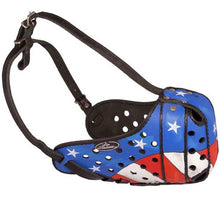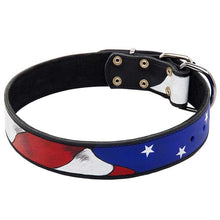6 Super Foods That Will Keep Your Dog Healthy

No matter what you’re feeding your dog, a little variety and nutritional boost can go a long way toward protecting your dog’s good health. By supplementing your dog’s kibble, raw food, homemade food – or whatever variety you feed – these foods can help keep your dog healthy and support an active lifestyle.
Organ meats: Organ meats are often missing from kibble and processed dog foods. Compared to muscle meat, organ meat is packed with vitamins, including: Vitamins B1, B2, B6, B12, folic acid, iron, CoQ10, Vitamins A and K2. Organ meats are also full of minerals such as phosphorus, iron, copper, magnesium and iodine. Organ meats support the functioning of the heart, cells, brain, nerves, promote healing, and help prevent birth defects. Organ meat is very affordable and if you don’t want to feed raw, easy to cook for your dog. The organ meats of grass-fed animals contain higher levels of nutrients than grain fed.
Coconut oil: Coconut oil is loaded with lauric acid, capric acid, caprylic acid, myristic acid and palmitic and most of the health benefits are derived from medium chain triglycerides. In laymen’s terms, that means that this superfood is great for the skin and coat, and is antibacterial, antiviral, and antifungal. Coconut oil provides energy, fuel, and promotes a healthy weight by helping balance the thyroid. Coconut oil helps sedentary dogs have more energy, protects the immune system, aids digestion, and reduces allergic inflammation. When you buy coconut oil, look for organic unrefined oil, which is white and solid, not liquid oil. Coconut oil can also be rubbed into dry skin, paws, minor cuts and abrasions.
Eggs: Eggs are a perfect protein source for dogs. They contain amino acids, vitamin A, riboflavin, folate, vitamin B12, iron, selenium and fatty acids. Eggs are an inexpensive pure protein source that contain all the building blocks of life. Eggs can be fed raw a few days a week. If you’d rather not feed the egg raw, cook the white only (sunny side up) for maximum nutrition. Crush and feed the shell to balance the phosphorus and calcium, making the egg an excellent source of nutrition. It is best to buy eggs from chickens raised without hormones or antibiotics.
Green tripe: This stinky gem is packed with natural digestive enzymes and probiotics. It is loaded with B vitamins, essential fatty acids, and naturally contains the right calcium to phosphorus ratio. Canned green tripe can be purchased if you cannot find it. Feeding green tripe to your dog can improve overall health, help prevent digestive problems, treat constipation, and support the immune system. If you are new to feeding green tripe, do your research on safe handling, cutting, and feeding first.
Chia seeds: Chia seeds are high in antioxidants and omega 3 fatty acids. They are an excellent source of fiber, calcium, phosphorus, magnesium, manganese, copper, iron, molybdenum, niacin, and zinc. Chia seeds don’t need to be ground, they can simply be added to your dog’s food and some people like to mix them into coconut oil for a yummy treat. Chia seeds support the immune system, reduce inflammation, protect the skin and coat, protect joints, promote brain and eye health. They also slow digestion to aid in the absorption of nutrients, stabilize blood sugar and contain more calcium than yogurt and more iron than spinach. How much chia seeds should you feed your dog? A little goes a long way! ¼ teaspoon for every 10 pounds of your dog’s weight. Look for milled, organic chia seeds.
Kefir: Kefir is fermented milk that is chuck full of probiotics and easier on the digestive track of dogs than milk. Health and nutrition start in the gut and just 1 – 3 teaspoons of kefir a day can provide your dog with all the probiotics needed to keep the gut healthy.
























